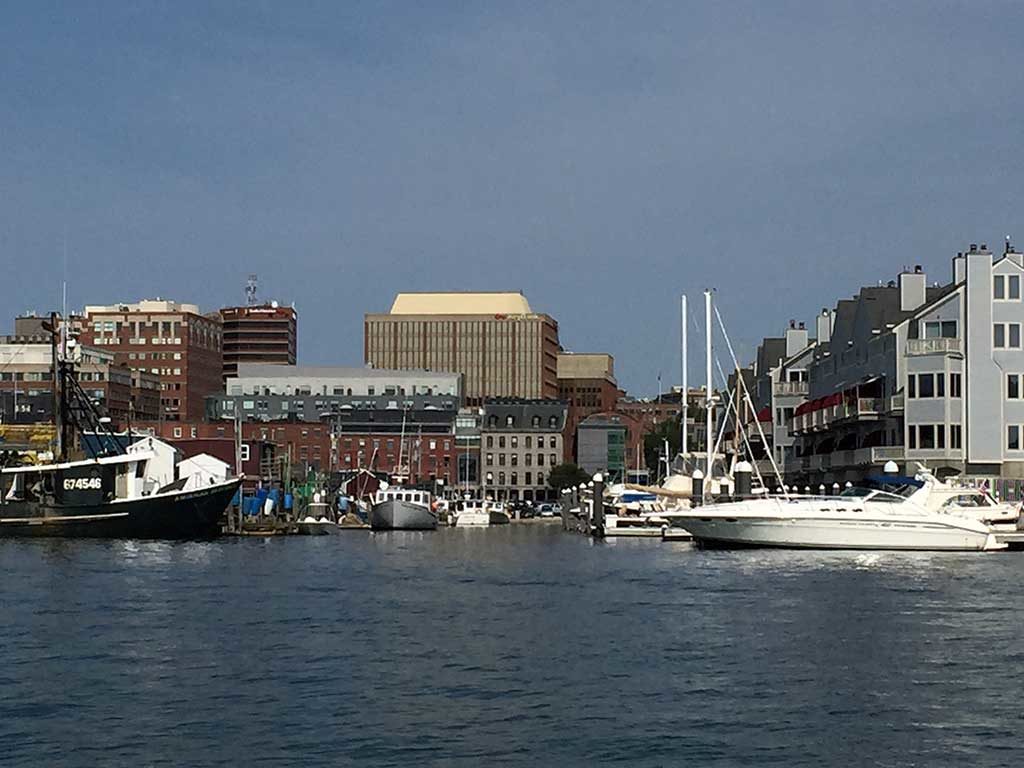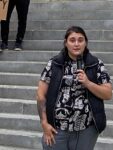
The Urbanist Coalition of Portland (UCP) is an advocacy group with the goal of making Portland more livable for everyone. We support middle density, mixed-use neighborhoods with access to transit and cycling infrastructure, which will provide affordable housing, protect our environment, and make our city a more pleasant and safe place to live and work. Our policies and approach are strongly inspired by the YIMBY movement, Strong Towns, and more.
UCP wanted to hear from candidates about whether they support our main policy priorities, how they plan to accomplish those goals on the council, and what new ideas they’re bringing to the table. We asked a lot of questions, and the candidates had a lot to say. We couldn’t fit it all in this article. So, we encourage you to read the complete responses of all council candidates on our website, https://urbanistportland.me/elections.
UCP Candidate Survey 2024 – Champion Responses
Disclaimer: Our organization’s founder and president, Robert Todd Morse, is a candidate in the D1 council race. This article grades and compares candidates in the At-Large and D2 council races only. The responses of both D1 candidates are presented on the UCP website without grading or commentary.
Some candidate responses stood out above the rest, even among those who support our policy goals. These “Champion” responses showed enthusiasm and drive for tackling these issues head-on. They also offered specific policy proposals and demonstrated clear knowledge of the institutional levers they will have as city councilors to implement them. They made compelling arguments for their own well-considered policy proposals that align with our goals. Namely, making Portland more livable and affordable. We highlight some of these “Champion” responses below.
Housing, Land Use, & ReCode

Grayson Lookner: “The City should use zoning as a tool to incentivize the kind of development that it wants and needs: namely high density mixed use housing developments centered around (but not exclusively in) the dense core of the city, or in transit nodes like Woodfords Corner. Zoning should not be used to prevent growth or development. Zoning could be used to better activate empty parcels on the peninsula like the old scrapyard in Bayside or the million surface parking lots, by providing developments (public, private and non-profit developers) with allowances to build up and build dense, so we can create the kinds of vibrant neighborhoods that people love.”
Housing is clearly a top issue this election, and many candidates have given this policy area significant thought. Lookner touted a detailed social housing proposal. Social housing is a form of publicly-developed, bond-funded, mixed-income housing recently advocated by Alexandria Ocasio-Cortez. Falero and Pelletier also advocated social housing, and Pelletier proposed bond-funded affordable housing on a redeveloped Franklin Street.
Lookner offered a concrete, ambitious goal for the number of new units Portland should create based on Portland’s housing shortfall as estimated by MaineHousing. Viola and English also gave concrete goals, though they were more modest. Grant, Lookner, O’Brien, and Falero mentioned a desire to spur redevelopment of surface parking lots. O’Brien, Pelletier, and English expressed a willingness or desire to revisit Portland’s inclusionary zoning requirements. Meanwhile Falero would focus on enforcing the existing rule.
Several candidates confessed a lack of familiarity with the latest drafts of ReCode. They promised to examine it closely if elected. As Chair of the Planning Board, Mazer has been involved in the ReCode drafting process at every stage. Yet he had surprisingly little of substance to say about it, mentioning only the accessory dwelling unit use passed in 2020. UCP has been closely engaged with the ReCode process. We published our own detailed recommendations last year, which we have amended and updated in response to the City’s proposals as they have been released.
Transit & Transportation

Jess Falero: “The bus is an invaluable tool for hundreds of Portlanders […], but it needs to be invaluable to thousands. We can get there by lowering the per-ride cost through municipal subsidy and by increasing the frequency and number of routes.”
Falero, Lookner, Mazer, English, Pelletier, Grant, and Nekoie all highlighted the need for increased bus frequency. O’Brien noted being a regular bus user and would like to see the Breez commuter bus service expand. Lookner and Pelletier want more seating and shelters at bus stops, with Lookner proposing to fund upgrades using tax increment financing districts.
Pedestrians & Cycling

Wes Pelletier: “Without paid staff focused specifically on sustainable transportation, making progress on these issues has been painfully slow. Almost all of my answers are cribbed from recommendations made by the Portland Bicycle and Pedestrian Advisory Committee, which puts out truly impressive, thought out reports and audits, and reinstating the coordinator position to liaise with them, the rest of staff, and city council, would go a long way towards streamlining the process. In that same vein, we should, as the PBPAC has been advocating for, form a special committee to update the city’s technical guide, which could allow for things such as requiring traffic calming for all projects, rather than just those that have residents with the time and influence to push for it.”
We were encouraged to see how much support there was among candidates for making Portland more livable and safe for everyone not inside a car. Falero, Lookner, and Pelletier advocated for protected bike lanes. Several candidates mentioned looking to the Portland Bicycle and Pedestrian Committee for policy guidance.
Parking

Robert O’Brien: “To drop parking ratios, we need more car sharing. Wouldn’t it be cool if there were something akin to an Uber subscription, where you get so many rides a month in a local area? That way you can do your grocery shopping or go to the doctor in the middle of the work day or get to work when it’s sleeting out — all for a manageable price.”
UCP was excited to see O’Brien’s enthusiasm for a car sharing program. Burlington, Vermont operates a non-profit car share program that UCP feels Portland could easily emulate.
Nekoie and Boykin voiced support for climate-friendly transit options, but emphasized preserving parking. Nekoie mentioned the needs of businesses that rely on parking. However, studies show that despite pervasive initial resistance, businesses consistently do better when their streets reduce car parking to prioritize transit, bikes, and pedestrians. UCP feels that bold leadership is required to follow the science and build the infrastructure needed to lessen car dependency.
Revitalizing Franklin Street
Councilors were generally excited about the opportunity to revitalize Franklin Street. Lookner, O’Brien, and Falero in particular had bold visions for creating dense, walkable urban housing. English and Mazer voiced reservations concerning trees and costs, while Viola had concerns about project management.
UCP feels that the revitalization of Franklin Street is a critical opportunity to build housing, create functional open space by restoring Lincoln Park, and reconnect neighborhoods with a multimodal street design. The project needs a champion on the City Council who will advocate for a vision that serves Portlanders and will bring this project across the finish line.
Urbanist Coalition of Portland (UCP) Candidate Survey 2024 was provided by UCP. It was published in the October Edition of The West End News as a service to the voters. Thank you for reading community print news.





